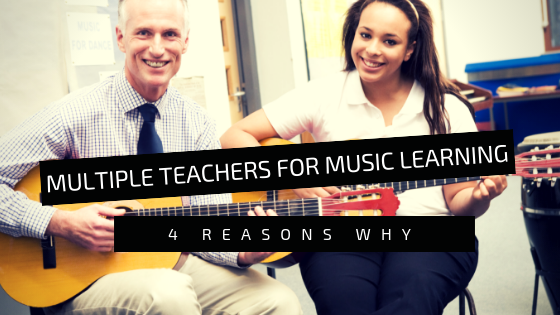There are numerous evidences that imply that Music education can play an important part in child’s development and an adult's mental health, especially in their academic performance as well as life lasting communication skills. Let us look into how can music education really make someone smarter.
Heightened Brain Development : When playing an instrument , it requires the attention of our brain which opens up several neural path in brain that helps in developing the brain. It undergoes various mental activity that keeps the brain active and drilled for complicated arrangements so that it can solve and react to the things as quickly as possible. Somehow the architecture of the brain changes in a way that it starts perceiving tasks in a broader, smarter and emotional way. Thus, regularly reading and practising music heightens the processing ability of our brain and it tends to decipher complex activities with ease and efficiency.
Stronger Memory Power : Music education pushes you to understand certain capabilities of our brain, most effectively, the ability to memorise in most innovative ways. It can teach you to analyse the task in hand and process the data in a way that you can connect them with relation to its purpose. This way, when you can connect the dots it helps you remember things better. It also enhances your spatial, auditory and visual capacity that helps you comprehend things much better.
Enhanced Cognition and Co-ordination ability : Playing an instrument requires concentration and conscious attention to details. It also requires a lot of coordination to be able to execute the playing accurately. So, with regular practice you can develop your coordinating abilities that will enhance your skills in the instrument, but also it will help you tackle other activities that you come across in your daily life that requires you to have some type of coordination. Practicing music is like a workout of your brain, so you are building muscles which will store more information as well as react more efficiently to the tasks given. Thus it also improves your cognitive abilities which helps you retain things better, plan effectively and focus your attention to the necessary.
Faster ability to learn : As we have seen from above discussions that music really plays a vital role in the development and enhancement of our intelligence, it is safe to say that ultimately, if one has successfully done their music education, it can help them in the long term. They have higher sense of conscience, consciousness, enhanced cognitive and spatial capacity and a broader sense of how things work. It prepares you for all the challenges that may come your way, you tend to learn about your surrounding faster and take the reasonable action necessary. It provides you the ability to learn things faster and use them to benefit your skills.
Music does not only make you smarter, it supports you emotionally as well. It can be one of the most supportive bases that you can rely on and yet it provides you with so many benefits that can enhance your lifestyle or can be used to improve the literacy standard in school education. So the reason one should consider learning music is not just all because of their benefits but also for the joy you get listening and playing them which sub-consciously moulds your personality for better.
BlueTimbre is a unique Music Company with Music Education spaces, Jam Room and Recording studio based out of Whitefield, Bangalore, India. BlueTimbre also provides complete end-to-end Music Education solutions for schools. The BlueTimbre team comes with decades of cumulative experience in running Structured Businesses, Music Curriculum Development, Music Education and Performance.












